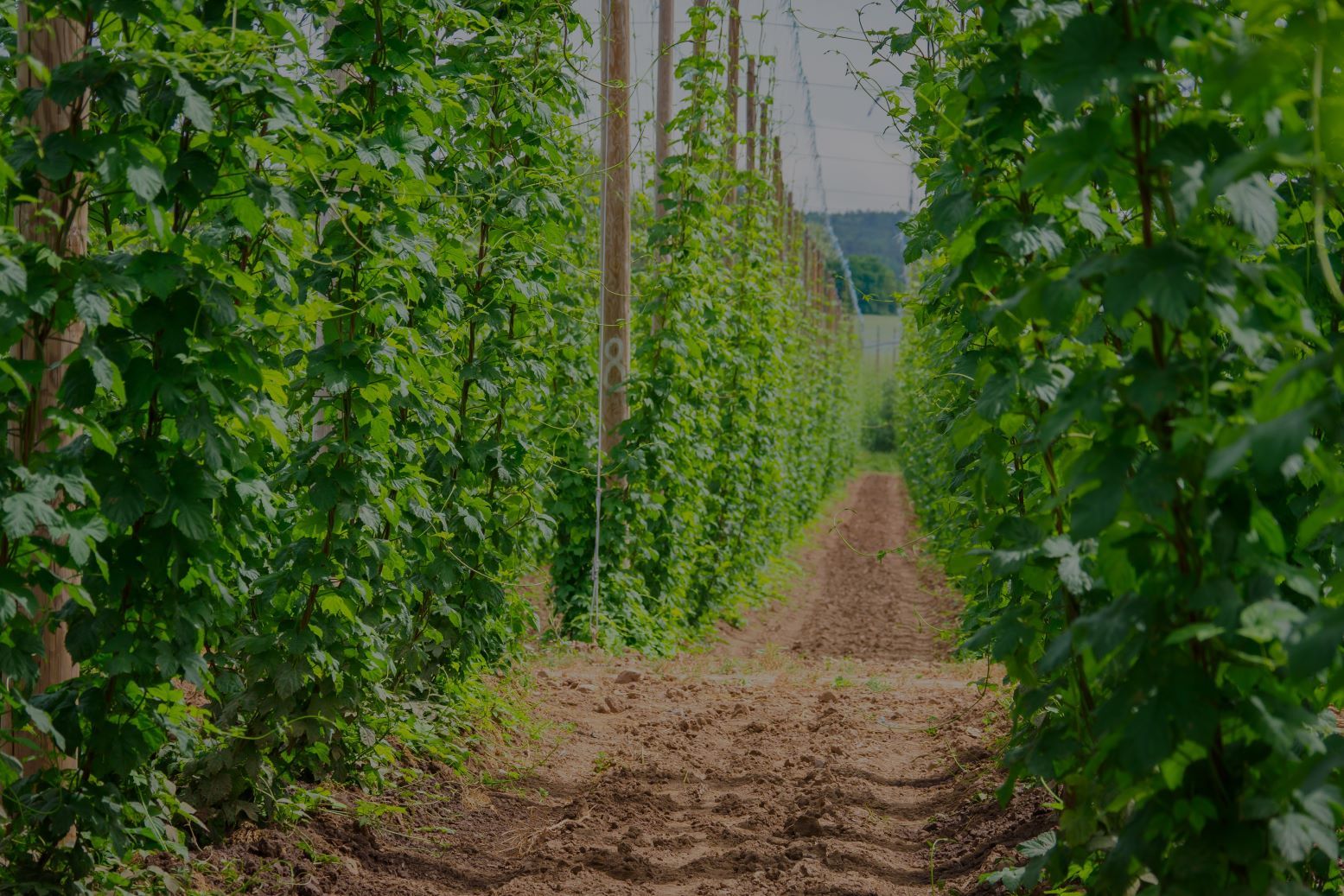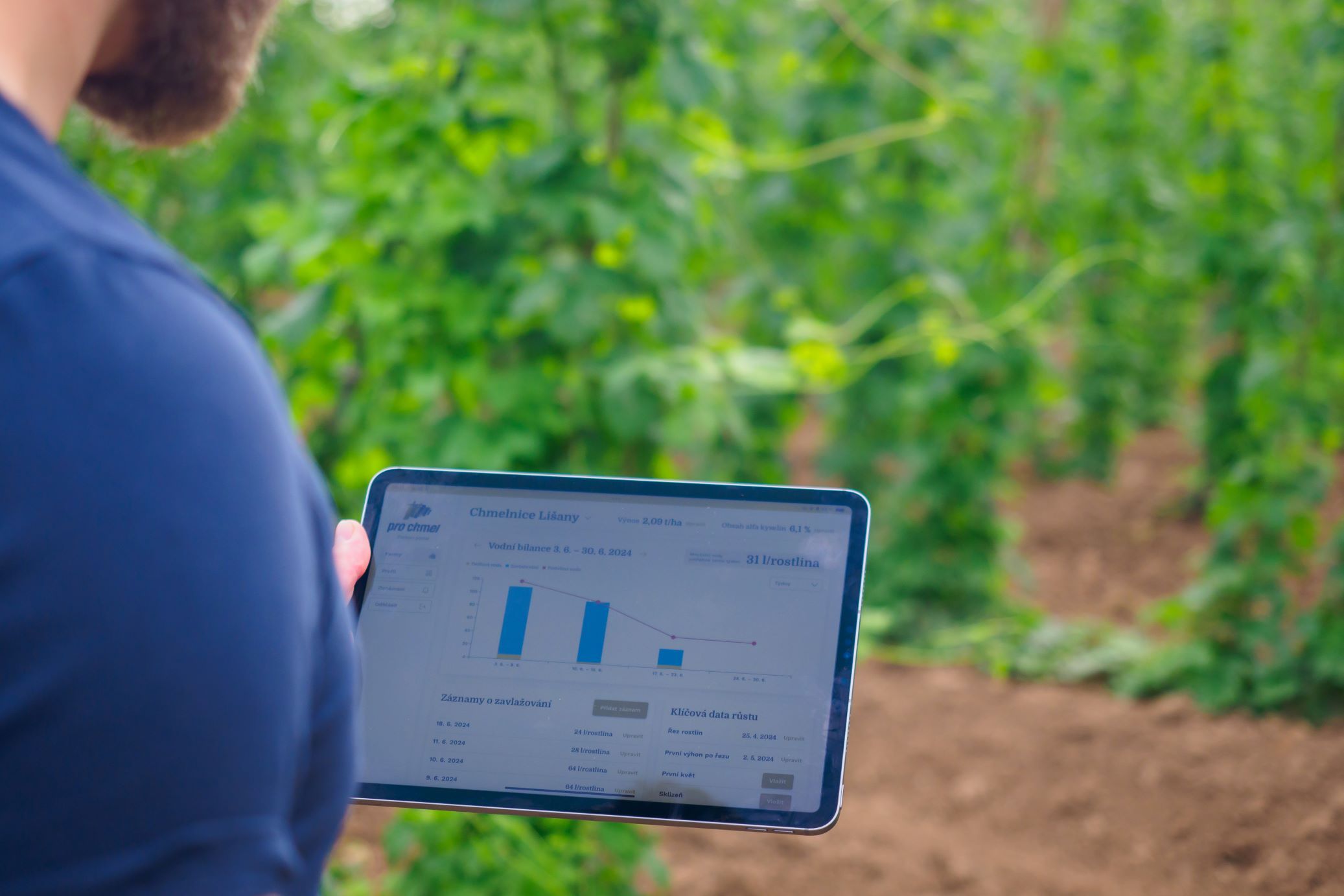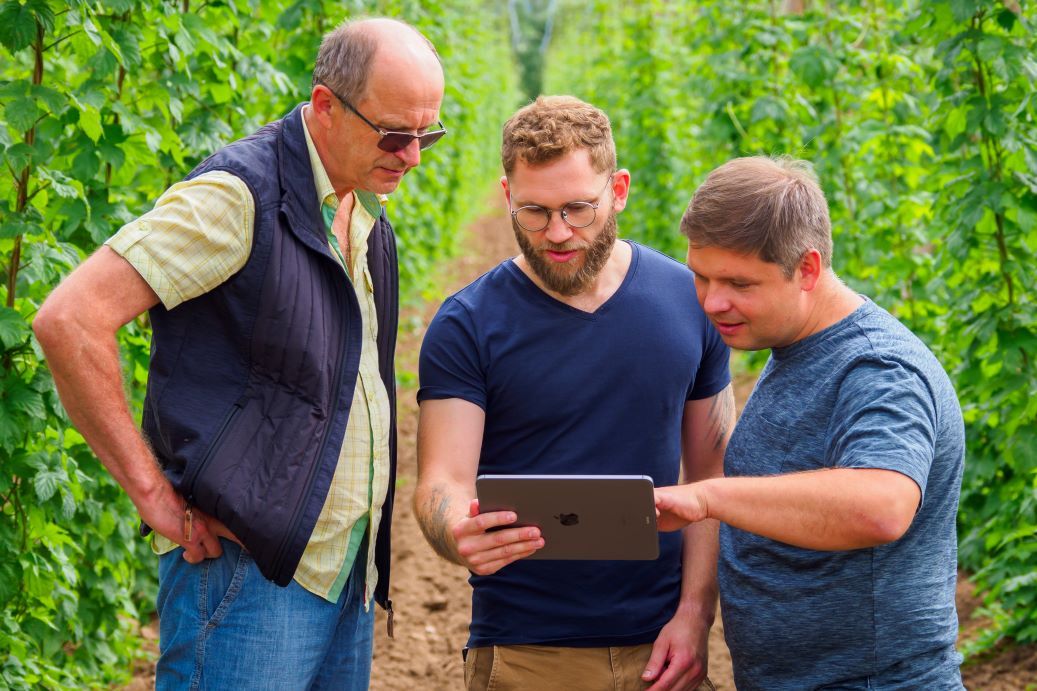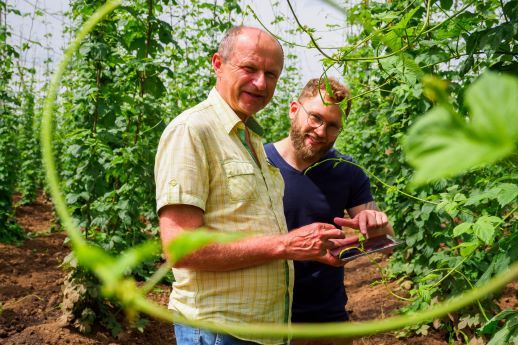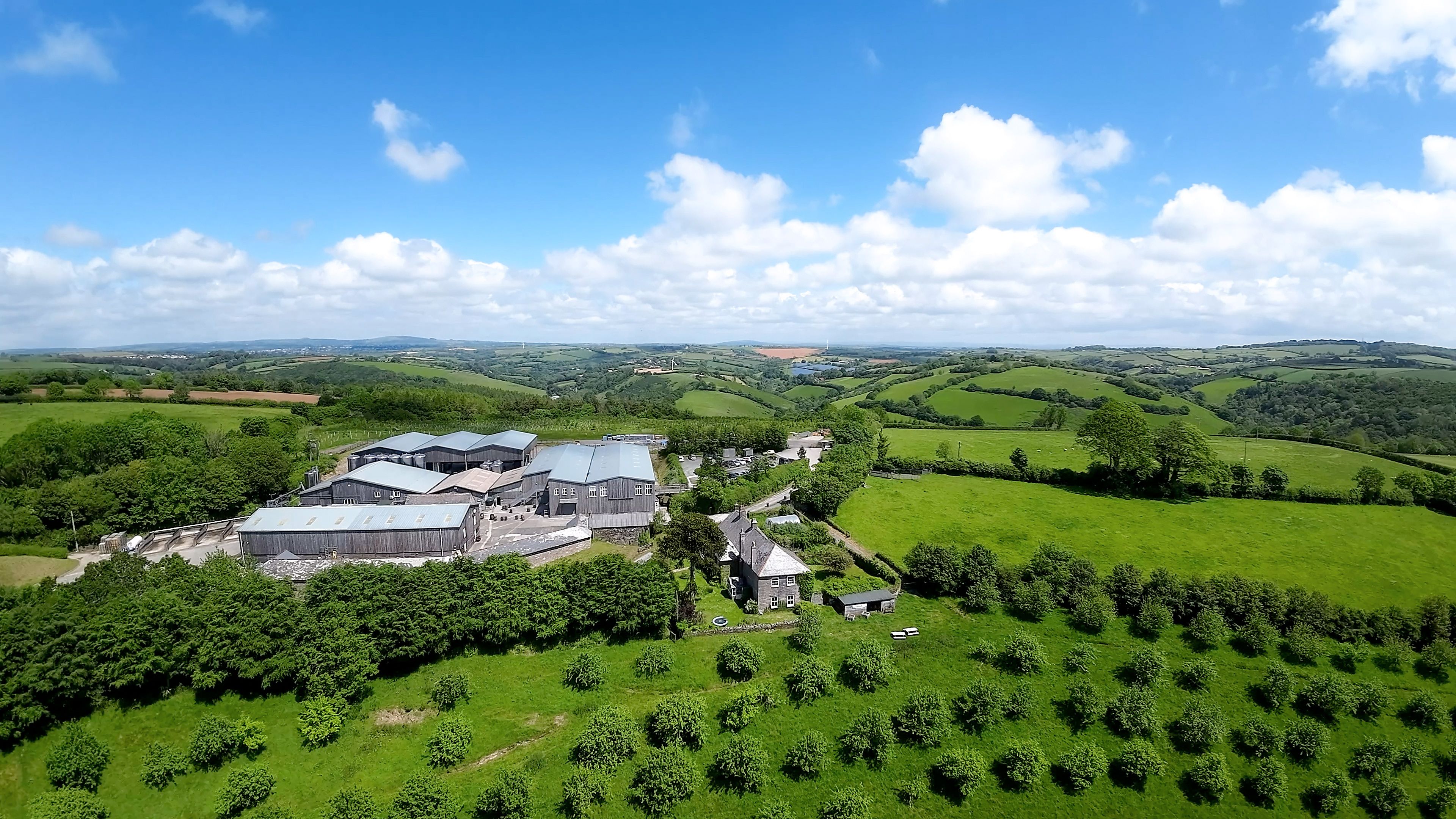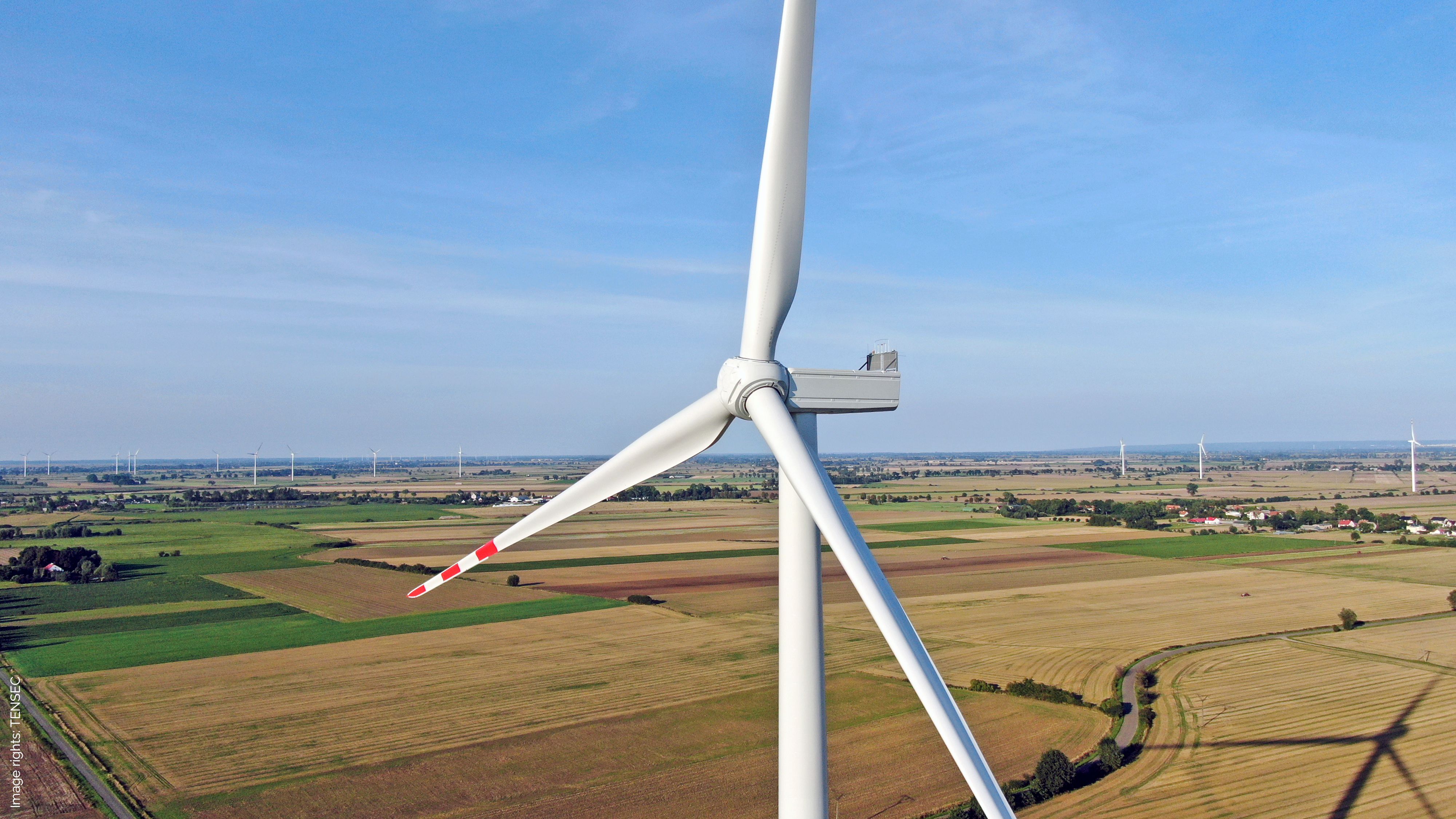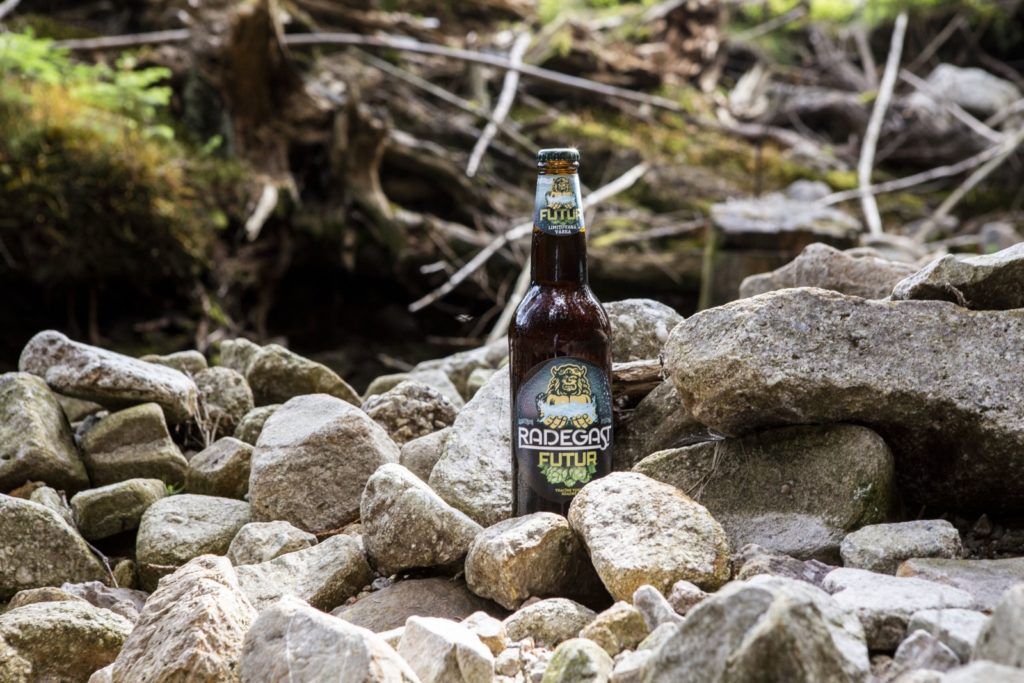The first mobile phone application in the world that will tell hop growers exactly when, where and how much water they should use to irrigate their farms is a result of the FOR HOPS research project initiated by Plzeňský Prazdroj. This user-friendly application, which works on standard smart phones, has been developed by Czech developers from studio Ackee and utilises hundreds of millions of pieces of data from sensors located on hop farms in the soil, on hop plants, from weather stations and satellite images, as well as other sources. The unique solution should help maintain the quality of domestic hops, which are the essential ingredient in brewing Czech beer and has suffered in recent years due to climate change and weather fluctuations. The application will be available in pilot operation to one in ten domestic hop farmers. They will test it on 28 hop farms.
“We have developed an application that helps hop farmers and shows them how to use water efficiently. The application can advise them on where, when and how much water they should use to irrigate, specifically down to the level of individual hop farms. Hop farmers enter the coordinates of their farm, as well as their expected yield of hops at the end of the season that should correspond to the long-term average, into the application. Based on detailed data from the previous two years of measurements, weather forecasts and irrigation data from previous periods, they can see how much water they need to use in order for the hop plants to flourish,” explains Ivan Tučník, FOR HOPS Project Lead from Plzeňský Prazdroj.
Exactly because of the long-term problem with a lack of water on Czech hop yards that represents a threat to the yield and quality of hops, Plzeňský Prazdroj together with the Hop Research Institute, Microsoft and other partners launched the FOR HOPS project in 2021. Six participating hop farms were equipped with soil sensors, weather stations and other smart technology. In the course of two years of measurements, an extensive database was created that comprehensively mapped conditions on fields and was used as a base for the creation of predictive models of weather impacts on the growth of hop plants, and became the core of the application.
Each hop plant needs 800 litres of water
The key functionality of the FOR HOPS application is an overview of the water balance on a specific hop farm. Based on previous levels of precipitation, soil humidity and irrigation, the application calculates the volume of needed (missing) water that ideally should be provided to hop plants in order for farmers to get the expected yield and content of alpha acids, which are essential for the bitterness of beer. Based on the data from hop yards gathered in the past two years, the researchers discovered for the first time in history that one hop plant needs about 800 litres of water per season, whereas this volume can vary depending especially on ambient temperature.
The new application not only advises hop farmers how to irrigate during the respective week, but will also help them predict how much water in total they will need for their hop farms from spring to harvest. Farmers with no access to a reliable source of water, which is the majority of domestic farmers, can assess the rate of return on investment in a collecting vessel and estimate its size.
We saw how much water was needed to increase the yield and how the FOR HOPS project was able to help hop plants for the first time last year. Last year, Václav Burger, one of the participating hop farmers from the LUPOFYT farm in Chrášťany, applied the findings from the first year of measurements of the FOR HOPS project, and thoroughly adjusted irrigation on some hop farms thanks to the collected data. “We started to irrigate based on the data last year in April sooner than usual, and the moisture stayed in the soil when hop plants needed it and when we had no opportunity to get it from a watercourse. Thanks to this, the yield in locations where the data from the FOR HOPS project was used was 40 percent higher than the average from the previous three years. I believe the application will represent another contribution that will help us stabilize the yield of hops,” says Václav Burger.
More Czech hop farms to join
The FOR HOPS application uses a predictive model developed by the Canadian company TensoAI for its recommendations. The model is literally stuffed with data from the previous two years of the project, when gigabits of data from hop farms were flowing into it: information about the weather, precipitation, humidity, wind strength and sunshine, satellite images, historical data from Czech hop farms, current yield of hops, content of alpha bitter acids, soil analyses, leaf analyses, etc. Based on the data from six monitored locations, the predictive model is able to determine the volume of water that is needed on other hop farms as well. This way, the application can be used by other farmers who have not participated in the project so far, and have no sensors or other measurement devices installed on their farms. The original six farms have been joined this year by six more hop growers and the application will be available in its pilot operation to 12 farmers, which represents one tenth of all hop growers in Czechia. They will test it in a total of 14 different locations on 28 hop farms until the end of this season.
The application is the creation of Czech developers
Despite the fact that FOR HOPS is a project in which experts from all around the world participate, the application as such is the creation of Czech developers from studio Ackee which succeeded in the selection procedure. “The application has been optimized to be accessible from computers, tablets and phones, and provides the same user experience on all devices. In the background, the application communicates via an API interface with the predictive model from TensoAI. The predictive model runs in the Azure cloud from Microsoft and is based on machine learning methods. Thanks to artificial intelligence, we are able to provide forecasts even to those hop farmers who have no sensors located on their farms,” adds David Bilík, Technical Director from studio Ackee.
The FOR HOPS project will continue in the following months. “We will continue with measurements on hop farms for the entire season this year, and we will analyse all the data from the participating hop farms. The predictive model will learn and adjust its algorithm based on reality. At the same time, we will get feedback directly from farmers on how they like using the application and what results it provides them. In the future, we would like to offer the application to more Czech hop farmers,” concludes Ivan Tučník.

